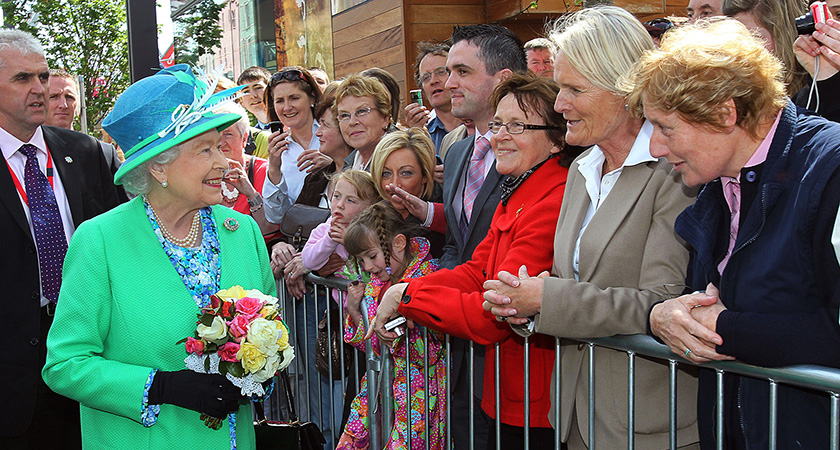A LONGFORD man has been convicted of possessing an explosive substance and making bomb threats during the state visit of the Queen to Ireland five years ago.
Donal Billings, 66, of Drumlish, Co. Longford was found guilty today by three judges at the Special Criminal Court in Dublin.
Billings was found to be in the of the unlawful possession of an explosive substance at Longford railway station car park on May 16, 2011.
He was further found guilty of four offences under the Criminal Law Act of 1976 of knowingly making false reports tending to show that an offence had been committed.
Billings was found guilty of making a false report within the State on May 16, 2011, that bombs had been placed at Busáras bus station in Dublin and at Sinn Féin’s headquarters, also in Dublin.
He was also convicted of making a false report on May 18 that two mortars were set for Dublin Castle.
He was also convicted of making a false report on May 20 that two bombs had been placed in the toilets at Cork airport, where the Queen was due to depart from.
Billings had denied the five charges.
At the beginning of the trial, he applied to be tried in the Irish language.
 Queen Elizabeth II meeting crowds in Cork during the historic state visit in 2011. (Picture: Getty Images)
Queen Elizabeth II meeting crowds in Cork during the historic state visit in 2011. (Picture: Getty Images)Evidence was therefore heard in both English and Irish that on Monday May 16, 2011, Billings bought a SIM card, with an 086 number, from an O2 shop in Longford shopping centre.
That evening, a Dublin-bound Corduff travel passenger bus stopped outside Longford railway station and CCTV footage presented to the court showed a man walking into and leaving the railway station carpark.
A phone call was then made to Longford Garda Station where the male caller told the guard on duty to "listen carefully."
He said there was a bomb on the Corduff travel bus, a second bomb on a bus at Busáras a third bomb at Sinn Féin headquarters in Dublin.
Following the phone call, gardaí searched the three locations named by the caller. Nothing of significance was found at either Busáras or the Sinn Féin headquarters.
However, when the Dublin-bound passenger bus was searched outside Maynooth, gardaí found an improvised explosive device.
Investigations of phone data showed that the phonecall had been made from the same 086 number associated with the SIM card bought in Longford shopping centre.
On May 18, another phonecall was made to Longford Garda Station where the caller said, "I am a member of the Republican Brotherhood Squad A. Two mortars are set for Dublin Castle at 8pm. This is for the Queen of Blood, War of Iraq."
This was the evening of a state banquet held in honour of Queen Elizabeth II at Dublin Castle.
Following the call, the area was searched. Nothing was found.
Two days later, Longford Garda Station received a third phonecall. The man said there were two bombs in Cork, adding, "We didn't get Dublin Castle but we did the bomb in Maynooth."
That afternoon, the Queen was due to depart from Cork Airport. Once more, a search was carried out and again, nothing was found.
Earlier that afternoon, Billings had been followed by a member of the Crime and Security Unit from his home in Drumlish to a LIDL carpark in Longford.
During the trial, giving evidence, Billings said that it was in this carpark he found the SIM card associated with the 086 number.
Giving the court's verdict today Mr Justice Tony Hunt said that if this were true it would have been an "unfortunate coincidence."
Billings said that the IMEI, which is a 15 digit unique number used to identify mobile devices, was cloned.
Mr Justice Hunt stated today that the court was "simply unable to entertain the sheer implausibility of this account, by reason of the nature and number of coincidences involved".
The court rejected Billings' testimony as being both "highly improbable and completely untruthful", Mr Justice Hunt said.
Billings had also claimed he was in Mullingar on the evening the explosive was found on the bus.
Mr Justice Hunt said that the court also rejected this evidence, adding that Billings presented as "an evasive and untruthful witness".
"The innocent version of events is far too dependent on multiple unlikely coincidences to plausibly exist as a matter of reasonable possibility," the judge said.
Billings was remanded in custody until November 30, when he will be sentenced.

